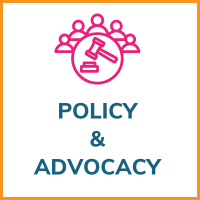Four organizations selected to deepen research and practice and strengthen outcomes for students with disabilities New York City, NY – The Center for Learner Equity (CLE) announced today the four organizations selected for Cohort 2 of its NICE Community of Practice (CoP). The initiative is designed to build the capacity of regional special education support organizations to strengthen inclusive systems and accelerate outcomes for students with disabilities through research, shared learning, and leadership development. CLE’s Network of Infrastructure & Collaborative Entities (NICE Network) and its Community of Practice model support member organizations in examining and strengthening the systems that drive impact for students with disabilities in charter and traditional district schools. Cohort 2 focuses on Research & Practice, equipping grantees to conduct structured needs assessments, build capacity, and develop case studies aligned with NICE’s mission to transform outcomes for students with disabilities. “Improving outcomes for students with disabilities requires more than isolated programs—it requires disciplined inquiry into what works, why it works, and how it can be strengthened,” said Gretchen Stewart, CLE’s Senior Director of Educational Leadership. “Cohort 2 brings together organizations committed not only to serving all schools and students, but to studying their own impact and contributing shared […]
We were pleased that the Department of Education hosted a formal listening session to hear personal experiences with special education and vocational rehabilitation from parents, teachers, students with disabilities, and other advocates. The session provided an opportunity for stakeholders across our communities to share specific examples of the importance of IDEA and Section 504 and why the Administration must not shift key functions and roles that these and other federal laws require the Secretary of Education to oversee. During the three-hour session, not a single speaker expressed support for dismantling the Department of Ed or decreasing federal oversight of IDEA. The Department of Ed continues to hear the same message: now is the time to advance IDEA, not dismantle 50 years of progress. As a proud partner of the Advance IDEA Coalition, see our joint statement here: OSERSListeningSession2026-01-28
Why Special Educators Leave and How Leaders Can Keep Them: A Guide for Principals and System Leaders
If we want better outcomes for students with disabilities, we have to retain the educators who are committed to expanding inclusive learning environments. Yet entering this school year, public schools again reported that special education was among the hardest roles to staff; 74% of elementary and middle schools struggled to fill teacher vacancies, with special education positions among the most challenging to fill, according to the National Center for Education Statistics. That’s not an isolated blip — it’s a pattern we’ve seen for years, with special education consistently ranking as one of the top shortage areas nationwide. In October, the Center for Learner Equity (CLE), in partnership with the New Jersey Public Charter Schools Association (NJPCSA), released a practical Action Guide for system and school leaders who are ready to move from worry to work. This resource focuses squarely on supporting and retaining special education teachers — because if school leaders can better understand the root causes of why special educators leave their jobs, then we can take action to help these teachers stay. Download the guide here: CLE NJ Special Educators Brief_0925_V4_FINAL Read our Blog Post here.
“The recent threats to consolidate the Education Department’s Office for Civil Rights (OCR) within the U.S. Department of Justice are even more devastating for students at the intersection of race, poverty and disability. This move severs the civil rights lifelines that protect students who are farthest from privilege and opportunity.” – Jennifer Coco, interim executive director of CLE. We cannot maintain the status quo for our students. But losing both OCR’s personnel as well as their insights reverses 50 years of progress. Read Jennifer’s powerful op-ed in K-12 Dive here.
Washington, D.C. – In response to yesterday’s release of the negotiated Fiscal Year 2026 funding package for the Departments of Labor, Health and Human Services, and Education, the Center for Learner Equity (CLE) thanks House and Senate appropriators for affirming the Department of Education’s (ED) critical role and ensuring all aspects of the Individuals with Disabilities Education Act (IDEA) are funded. Each component of the IDEA (Parts B, C, and D) reaches distinctly different constituents, from students with disabilities birth to 21, their families, and educators, to supports for districts and charter schools on implementing best practices, to critical research, and more. The funding package must be agreed upon to fully fund the government before the January 30 deadline. “Appropriators have made their intent and directives clear: The Department of Education has an ongoing responsibility to carry out programs and activities that Congress has singularly directed the agency to do,” said Jennifer Coco, Interim Executive Director of CLE. “Language in the legislation requires ED to continue functioning. What’s more, we appreciate Congress recognizing that every subpart of our K-12 education statutes is essential by directing funding for IDEA Parts B, C, and D, and Title I, Title II, Title IV, […]
“There is a sense of fear and chaos in schools. They’re already operating on razor-thin margins. What they can neither handle nor sustain is more delays. Or the notion that federal reporting is now getting spread across multiple agencies.” – Jennifer Coco, interim executive director of the Center for Learner Equity. The path to dismantle the Department of Education through executive orders, layoffs, and canceled contracts last year seriously threatened essential services of millions of children with disabilities. Especially when Secretary Linda McMahon acknowledged that nothing will remain in the department. That means continued uncertainty for our nation’s schools Read the full piece in The 74 here.
Last year, the Center for Learner Equity (CLE) was a leading voice protecting students with disabilities, defending the Department of Education (ED), and advancing our vision around the future of education. At the federal level, our advocacy work accelerated with an urgent need to push back on harmful actions. We also continued our work alongside local partners as they strengthened their services and supports for students with disabilities, built more inclusive systems, and improved outcomes for the learners who need it most. That is the heart of CLE’s work: pairing urgent national advocacy with meaningful, sustained partnership with school systems on the ground. Together, our federal advocacy as well as our state and local partnerships reflect CLE’s holistic approach: protecting critical rights while supporting educators and leaders who make those rights a reality. Let’s take a look at a few highlights of 2025, to ground us in what lies ahead in 2026. Federal advocacy Much of the year was devoted to urging the Administration to protect 8+ million children with disabilities and Congress to advance the IDEA. This included: Virtual Town Halls: Organizing a November event attended by 1,300 parents and educators regarding recent federal actions around special education. Watch […]
This past year, there has been an increased passion and urgency to protect the rights of 8+ million students with disabilities. There’s also an opportunity to learn about the influential offices in the Department of Education (ED) — and why it’s imperative these offices must remain united under a single department. As the administration continues down its dangerous path of gutting programs that support the education of students with disabilities, we’re shedding light on how four education offices function. We dive into why their expertise matters and how these offices help turn the Individuals with Disabilities Education Act (IDEA)’s promises into a reality. The Office of Special Education Programs (OSEP) OSEP is the backstop to the IDEA. The office issues policy guidance and helps ensure states use IDEA funds properly so all students receive the support they need. This includes: Initiating and funding research and technical assistance centers uniquely designed to support special education teachers, specialists, and parents. Administering the distribution of IDEA funds and monitoring state implementation. Conducting site visits and collecting required data from states so Congress and the public are informed about the status of students with disabilities each year. The experts at OSEP ensure the IDEA […]
Washington, D.C. – The Center for Learner Equity (CLE) continues to vehemently oppose moving the functions of the Department of Education (ED) to other federal departments. This plan jeopardizes the rights and education of 8 million children with disabilities. While the six interagency agreements announced on Tuesday, November 18, 2025 do not include a plan to move the Office of Special Education and Rehabilitative Services or the Office for Civil Rights, these functions remain under threat. The actions taken are not only harmful, they are unlawful. This includes moving all functions of the Office of Elementary and Secondary Education (OESE), which administers K-12 grant programs including the Charter School Program, to the Department of Labor. “Students with disabilities are students first, but today’s actions separate programs for students with disabilities from all K-12 education programs,” said Jennifer Coco, Interim Executive Director of CLE. “This should not be a partisan issue. Dismantling the Department of Education will have negative consequences for children across the nation. We urge the Administration to reverse this decision, and we urge Congress to immediately conduct oversight hearings in the Senate Health, Education, Labor, and Pensions Committee and the House Education and Workforce Committee. And we will […]
If we want better outcomes for students with disabilities, we have to retain the educators who are committed to expanding inclusive learning environments. Yet entering this school year, public schools again reported that special education was among the hardest roles to staff; 74% of elementary and middle schools struggled to fill teacher vacancies, with special education positions among the most challenging to fill, according to the National Center for Education Statistics. That’s not an isolated blip — it’s a pattern we’ve seen for years, with special education consistently ranking as one of the top shortage areas nationwide. In October, the Center for Learner Equity (CLE), in partnership with the New Jersey Public Charter Schools Association (NJPCSA), released a practical Action Guide for system and school leaders who are ready to move from worry to work. This resource focuses squarely on supporting and retaining special education teachers — because if school leaders can better understand the root causes of why special educators leave their jobs, then we can take action to help these teachers stay. What makes this guide different This guide goes beyond identifying the problem—it helps solve it. The guide is designed for quick adoption with tangible recommendations, ready-to-use […]


